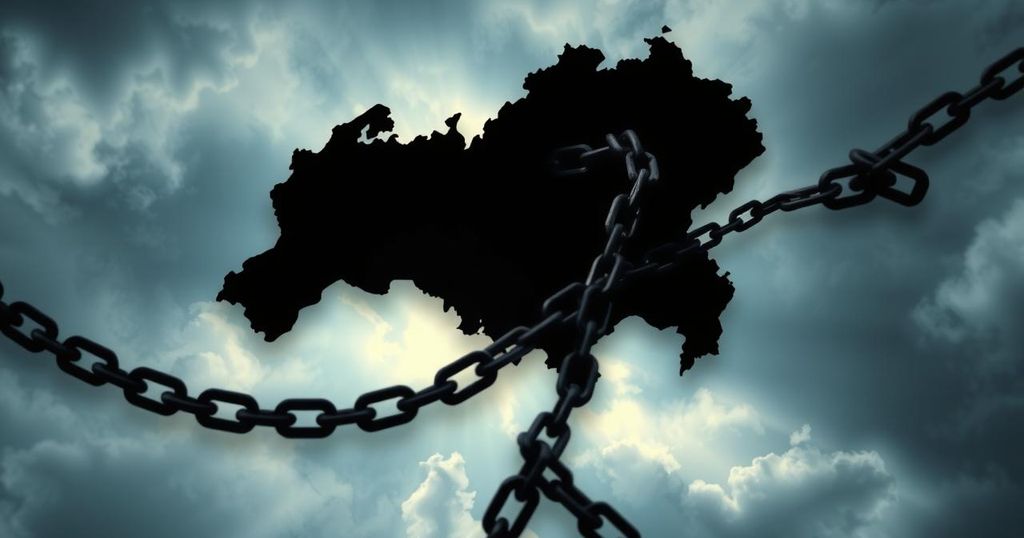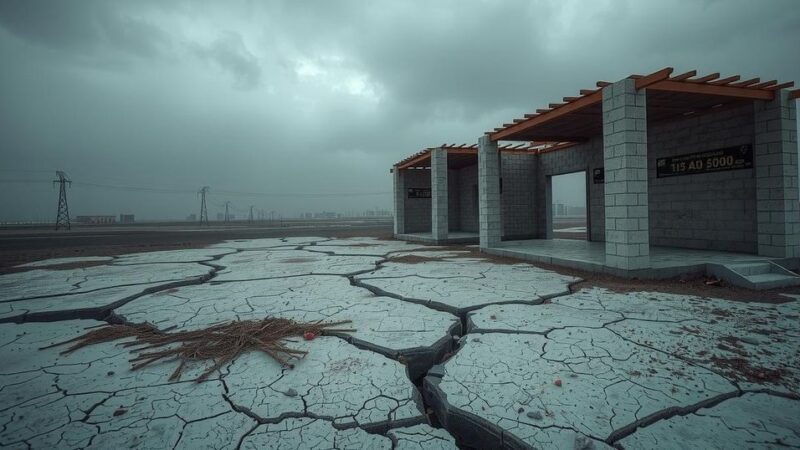Belarusian leader Alexander Lukashenko perceives volunteers fighting for Ukraine as threats to his regime. The extradition of Vasil Verameichyk underscores the regime’s relentless pursuit of dissidents. Experts warn of the vulnerability of these fighters, while Lukashenko’s fear of organized resistance is evident. His regime’s actions reflect a struggle to maintain control amid increasing dependence on Russia and attempts to engage the West.
The Belarusian ruler, Alexander Lukashenko, perceives Belarusian volunteers who are fighting for Ukraine as significant threats to his regime, labeling them terrorists and relentlessly pursuing them. The recent extradition of Vasil Verameichyk, a Belarusian soldier captured in Vietnam, exemplifies this oppressive approach, highlighting the regime’s commitment to suppress dissent both domestically and internationally.
Verameichyk was part of the Kastus Kalinouski Regiment, which fights alongside Ukrainian forces and was forcibly extradited after being kidnapped in November 2024. His situation reflects a broader pattern of repression aimed at Belarusian opponents abroad. Sviatlana Tsikhanouskaya’s office stated that his extradition is a direct consequence of the regime’s oppressive policies, underscoring a systemic effort to target dissenters.
During his appearance on state television under coercion, Verameichyk was forced to confess to untrue allegations of a planned incursion into Belarus, accusing the Security Service of Ukraine of complicity. Such propaganda aims to undermine Ukraine’s military credibility, portraying it as corrupt, and is part of a larger strategy to intimidate Belarusian soldiers abroad.
The regime publicly announced its pursuit of Belarusians engaged in combat roles in Ukraine, with Internal Affairs Minister Ivan Kubrakov estimating around 160 individuals identified. This relentless targeting stems from the view that these fighters symbolize rebellion against both Russian imperialism and Lukashenko’s authoritarian rule, leading to fears about their potential role in future uprisings.
Experts like Pavel Slunkin caution about the precarious situation for Belarusian volunteers, noting their lack of protection and an increasing risk of being preyed upon by Belarusian or Russian intelligence agencies. The absence of international support makes these individuals especially vulnerable to the authoritarian actions of their own country’s security services.
Historically, Lukashenko’s heightened fears of organized uprisings reflect lessons learned from previous conflicts and his concern over a potential armed resistance. He appears to be using the targeting of Verameichyk as a warning to discourage other potential fighters from joining Ukraine, instilling a pervasive atmosphere of fear among both defectors and the wider opposition.
With the escalating integration of Belarus into Russia’s military sphere, analysts suggest that this process is nearing completion, enhancing Moscow’s capabilities against Ukraine and its allies. In a surprising turn, however, Lukashenko has also appeared to seek limited engagement with Western powers, signaling a possible attempt to recalibrate relations amid increasing external pressures.
Although Lukashenko has reassured Western officials of his intent to reduce repression and shift reliance away from Russia, his aggressive stance towards former Belarusian fighters illustrates a deep-seated fear of internal threats. Nevertheless, it remains uncertain how effectively he can limit their activities or suppress their influence.
Political commentator Taras Kuzio speculated on a potential agreement between Lukashenko and Ukrainian President Volodymyr Zelensky, suggesting that Ukrainian forces are preventing Belarusian volunteer units from returning home. This speculative framework reflects complex relations and the precarious balance of power in the region, underscoring the intricate political landscape.
Lukashenko’s regime is intensively targeting Belarusian volunteers fighting for Ukraine, marking them as significant threats. The extradition of Vasil Verameichyk showcases the lengths to which the regime will go to suppress dissent. As Belarus becomes more intertwined with Russia, Lukashenko’s attempts to ward off potential uprisings reveal his deepening paranoia and reliance on oppressive policies. The situation for Belarusian fighters remains precarious and uncertain amid complex international dynamics.
Original Source: www.kyivpost.com






